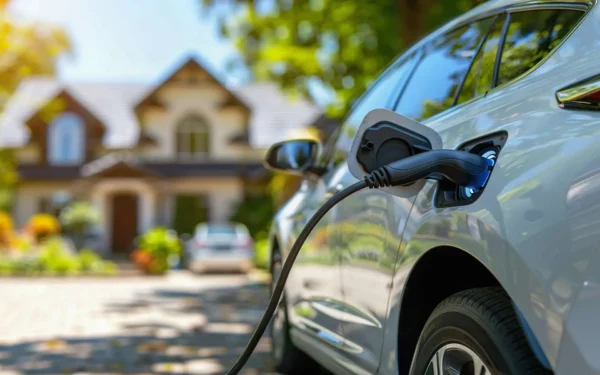
Introduction
Electric vehicle ownership keeps rising, and so does the need for a reliable home charging station. In 2025, smart chargers have become faster, more connected, and easier to manage. This article explains what to look for in a home charging station, compares top features, and highlights the best choices for different needs — from budget-conscious drivers to tech-savvy EV enthusiasts.
Why choose a smart home charging station? (H2)
A smart home charging station goes beyond simple plug-and-charge. Modern smart chargers offer:
- Scheduled charging to take advantage of off-peak electricity rates.
- Mobile app integration for monitoring and remote control.
- Load management to prevent circuit overloads in homes with limited electrical capacity.
- Energy reporting and vehicle charging history.
These features can shave 10–30% off charging costs when combined with time-of-use pricing and solar generation, making smart chargers an investment that pays back over time.
Key features to compare (H2)
When evaluating a home charging station, focus on these criteria:
Charging power and speed (H3)
Look at kW ratings and amperage. Typical residential chargers range from 7 kW (Level 2, ~25–30 miles/hour) up to 11–22 kW where residential panels permit. Faster charging reduces wait time but may require electrical upgrades.
Connectivity & apps (H3)
Wi-Fi, Ethernet, and sometimes cellular connectivity enable app control, firmware updates, and smart home integration (Apple HomeKit, Google Home, Amazon Alexa). Check the app’s usability and update history.
Load balancing / dynamic load management (H3)
If you have multiple EVs or heavy home loads, dynamic load management shares available power and prevents tripped breakers — essential in many 2025 urban homes.
Certifications & warranty (H3)
Ensure UL/IEC certification and at least a 3-year warranty. Many top brands now offer 5–8 year warranties for peace of mind.
Installation & compatibility (H3)
Professional installation may be required. Confirm charger compatibility with your EV’s onboard charger and that your panel can handle the added load.
Best types of home charging stations in 2025 (H2)
Here are categories of chargers that fit common owner profiles:
Best for budget buyers (H3)
Entry-level smart chargers now come with core app features and 7–11 kW power at a lower price. These are perfect for commuters with overnight charging routines.
Best for high-power needs (H3)
For owners with faster charging requirements or multiple EVs, 11–22 kW chargers paired with upgraded home panels deliver quicker top-ups and greater flexibility.
Best for tech-savvy owners (H3)
Premium chargers focus on integrations: vehicle-to-home (V2H) readiness, advanced load management, solar smart charging, and granular energy reporting.
Best for renters (H3)
Portable Level 2 smart chargers and easy-mount wall brackets provide flexibility without permanent electrical changes, useful for renters or those in multi-unit dwellings.
How much will it cost? (H2)
In 2025, typical smart home charging station hardware ranges from roughly $400 for basic units to $1,500+ for top-tier, high-power models. Installation varies widely — $300–$2,000 — depending on panel upgrades and local electrician rates. Factor operating cost: average U.S. electricity prices and vehicle efficiency result in roughly $6–$12 per 100 miles, but costs can be lower with off-peak rates or solar.
Quick buying checklist (H2)
- Does it support the amperage you want?
- Is it compatible with your EV and local electrical code?
- What connectivity (Wi-Fi/cellular) and app features are offered?
- Is dynamic load balancing needed for your home?
- What are warranty length and available customer support?
On installation and safety (H2)
Always hire a licensed electrician for Level 2 installations. Ask for a load calculation and, if needed, a panel upgrade estimate. Confirm the charger has overcurrent protection and is rated for outdoor use if mounted outside.
FAQ — short answers for busy owners (H2)
Q: Do I need a smart charger or will a basic Level 2 do?
A: If you value scheduling, energy savings, or smart home integration, a smart home charging station is worth the modest premium.
Q: Can solar reduce charging costs?
A: Yes. Smart chargers that integrate with solar or offer PV priority can substantially lower grid electricity use.
Q: How long does installation take?
A: Typical installs take 2–6 hours; panel upgrades take longer.
Conclusion (H2)
Choosing the best smart home charging station in 2025 means matching power, connectivity, and budget to your driving patterns. Whether you want a wallet-friendly unit for overnight charging or a high-powered, solar-integrated system that works with a smart home, the right charger will make EV ownership easier and cheaper. Use the checklist above and consult a certified installer to get the perfect setup for your home.